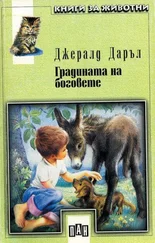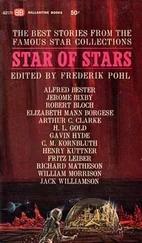A listening psychiatrist said, “Most extraordinary,” and began an explanation that promised to be interminable.
But Dr. Almuna cut him short. He said, “The explanation, my dear doctor, is an exceedingly simple one. Perhaps I failed to mention that John and William were Siamese twins, and had only one liver between them. And poor John had the thin end of it, which cirrhosed in advance of William’s.”
He added: “Intriguing, what? Perhaps the only case on record of a man drinking his teetotal brother to death.”
The story of the Baroness von Wagner that came to its sordid and bloody end after she, with certain others, had tried to make an earthly paradise on a desert island, was so fantastic that if it had not first been published as news, even the editors of the sensational crime magazines would have thought twice before publishing it.
Yet the von Wagner Case is commonplace, considered in relation to the Case of the Skeletons on Porcosito, or “Pig Island,” as it is commonly called.
The bones in themselves are component parts of a nightmare. Their history, as it was found, written on mutilated paper in Lalouette’s waterproof grouch bag is such that no one has yet dared to print it, although it happens to be true.
In case you are unacquainted with the old slang of the road, a grouch bag is a little pouch that used to hang about the necks of circus performers. It held their savings, and was tied with a gathered string, like the old-fashioned dorothy bag. This was necessary because circus-encampments used to be hotbeds of petty larceny. So on the high trapeze the double-back-somersault man wore his grouch bag. The lion tamer in the cage of the big cats might forget his whip or lose his nerve; he would never forget or lose his grouch bag, out of which would be filched the little moist roll of paper money that was all he had to show for his constantly imperiled life.
Lalouette carried her grouch bag long after the gulls had picked her clean. It contained sixty-seven hundred dollars and a wad of paper with a scribbled story, which I propose to make public here.
It is at once the most terrible and the most pathetic story I have ever had to tell.
At first the ship’s captain who landed on Porcosito, who subscribed to a popular science magazine, thought he had discovered the Missing Link—the creature that was neither man nor ape. The first skeleton he found had a subhuman appearance. The thorax was capacious enough to contain a small barrel; the arms were remarkably long and the legs little and crooked. The bones of the hands, the feet and the jaw were prodigiously strong and thick. But then, not far away—it is only a little island—in a clump of bushes, he found another skeleton of a man who, when he was alive, could not have been more than two feet tall.
There were other bones: bones of pigs, birds and fishes; and also the scattered bones of another man who must have been no taller than the other little man. These bones were smashed to pieces and strewn over an area of several square yards. Wildly excited, happy as a schoolboy reading a mystery story, the captain (his name was Oxford) went deeper, into the more sheltered part of Porcosito, where a high hump of rock rises in the form of a hog’s back and shelters a little hollow place from the wind that blows off the sea. There he found the ruins of a crude hut.
The roof, which must have been made of grass or light canes, had disappeared. The birds had come in and pecked clean the white bones of a woman. Most of her hair was still there, caught in a crack into which the wind had blown it or the draft had pulled it. It was long and fair hair. The leather grouch bag, which had hung about her neck, was lying on the floor in the region of the lower vertebrae, which were scattered like thrown dice. This human skeleton had no arms and no legs. Captain Oxford had the four sets of bones packed into separate boxes, and wrote in his log a minute account of his exploration of the tiny island of Porcosito. He believed that he had discovered something unexplainable.
He was disappointed.
The underwriters of Lloyds, in London, had with their usual punctiliousness paid the many thousands of pounds for which the steamship Anna Maria had been insured, after she went down near Pig Island, as sailors called the place. The Anna Maria had gone down with all hands in a hurricane. The captain, officers, passengers, cargo and crew had been written off as lost. Faragut’s Circus was on board, traveling to Mexico.
Captain Oxford had not found the remains of an unclassified species of overgrown, undergrown and limbless monsters. He had found the bones of Gargantua the Horror, Tick and Tack the Tiny Twins, and Lalouette.
She had been born without arms and legs, and she was the Queen of Pig Island. It was Lalouette who wrote the story I am telling now. . . .
Tick and Tack were tiny, but they were not twins. A casual observer sees only the littleness of midgets, so that they all look alike.
Tick was born in England and his real name was Greaves. Tack, who was born in Dijon, Brittany, was the son of a poor innkeeper named Kerouaille. They were about twenty-five inches tall, but well-formed, and remarkably agile, so that they made an attractive dancing team. They were newcomers to the circus, and I never saw them.
But I have seen Gargantua and Lalouette; and so have hundreds of thousands of my readers. Gargantua the Horror has haunted many women’s dreams. He was, indeed, half as strong and twice as ugly as a gorilla. A gorilla is not ugly according to the gorilla standard of beauty; Gargantua was ugly by any reckoning. He did not look like a man, and he did not quite resemble an ape. He was afflicted by that curious disease of the pituitary gland which the endocrinologists term acromegaly. There is a well-known wrestler who has it.
Something goes wrong with one of the glands of internal secretion, so that the growth of the bones runs out of control. It can happen to anyone. It could happen to me, or to you; and it produces a really terrifying ugliness. Gargantua, as it happened, was by nature a man of terrible strength. George Walsh has told me that he might have been heavyweight weight-lifting champion of the world. An astute promoter realized that there was money in his hideousness; so Percy Robinson rechristened himself Gargantua the Horror, grew a beard—which came out in tufts like paint brushes all over his face—and became a wrestler. As a wrestler he was too sweet-natured and silly, so he drifted into a side show. Naked to the waist, wearing only a bearskin loincloth, he performed frightening feats of strength.
In a fair in Italy I saw him lift on his back a platform upon which a fat man sat playing a grand piano. That same evening I saw Lalouette. I would not have seen her if I had not been in the company of a beautiful and capricious woman who said, when I told her I had a prejudice against going to stare at freaks, that if I would not come with her she would go in alone. So I bought the tickets and we went into the booth.
Lalouette was an aristocrat among freaks. She drew great crowds. Having been born without arms and legs she had cultivated her lips and teeth, and the muscles of her neck, back and stomach so that she could dress herself, wash herself, and, holding a brush or pencil in her lips, paint a pretty little picture in watercolors or write a letter in clear round longhand. They called her Lalouette because she could sing like a bird.
One had the impression that she could do anything but comb her hair. She could even move a little, by throwing her weight forward and sideways in a strange rolling motion. Lalouette painted a little picture while we watched and sang a little song, and my lady friend and I, overcome with admiration and with pity agreed that a woman of her accomplishment might have been one of the greatest women in Europe if the Lord in his wisdom had seen fit to make her whole. For she was a lady, superbly educated, and extremely beautiful—a blonde with great black eyes and magnificent hair of white-gold. But there she was, a freak on a turntable: nothing but a body and a head, weighing fifty pounds.
Читать дальше






